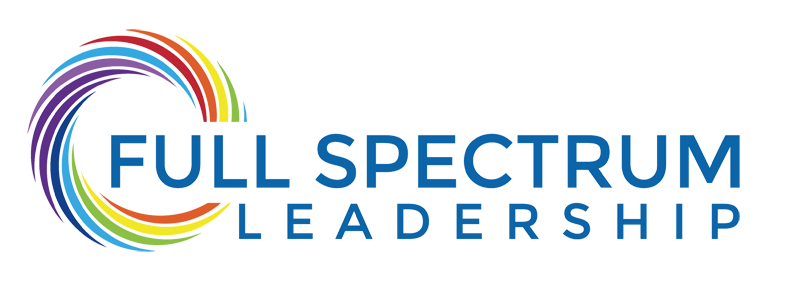Honoring Dignity in the Age of Data - Part III

Honoring Dignity – From Awareness to Reverence
Some ideas are like seeds carried by the wind; they take root quietly and then appear when you least expect them. The notion of dignity has been that sort of idea for me, present in every organization I’ve served, yet sometimes invisible beneath layers of ambition, efficiency, and performance. With awareness, we begin to see what is happening inside our systems; with dignity, we decide how we will act once we see.
A few weeks ago, during an online with Olivier, our conversation turned once again to meaning. He reminded me of his favorite French word, sens, at once direction, meaning, and sensation. He wondered aloud whether dignity might be the “directional sense” that guides awareness. His thought resonated deeply. Awareness without direction can become mere observation; dignity gives it feeling, shape, and purpose.
When I think of dignity, I often picture one scene from early in my career. I had been invited to advise a new management team at a shipping company. The executives spoke of modernization, automation, and productivity; they were proud of the new data systems that tracked every container and cost. Yet on the dock, I met long‑time workers who felt increasingly irrelevant. They were part of a living chain of knowledge, traditions passed hand‑to‑hand, and they sensed their wisdom disappearing beneath the click of new terminals.
One afternoon, an older stevedore named James said quietly, “They think the computer knows everything, but it doesn’t know the tide.” His words struck me as both literal and symbolic, progress works best when it respects the tides of human experience. The leadership team eventually invited James to teach younger employees about the patterns of weather, timing, and teamwork that no system could replicate. Productivity improved, but what truly changed was morale. People felt recognized again. The data didn’t save them, dignity did.
What I learned from that experience, and many others, is that organizations thrive when they practice reverence. By reverence, I mean the deliberate attention we give to another’s humanity, the quiet act of noticing their effort, respecting their voice, and letting them shape the story of their own work. Reverence is awareness made active.
In our digital age, reverence can feel old‑fashioned, even fragile. We are surrounded by metrics and algorithms promising precision. Yet none of them can measure the moral temperature of a meeting, the hesitation in a colleague’s voice, or the courage it takes for someone to admit they need help. These are subtler forms of information, perceptible only to those who choose to look with respect.
A mentor once told me that every decision in leadership can be tested with a single question: Does this action increase or diminish another person’s sense of worth? I have carried that question like a compass. It humbles any strategy, clarifies any conflict, and re‑centers every negotiation. And in truth, it can guide personal life just as well.
In one particularly difficult reorganization, I saw this principle at work. A manager named Claire faced the task of dissolving a department whose members she had long known. She could have delivered the news professionally but coldly; instead, she spent days speaking with each person individually, listening to their stories, helping them craft new paths, reminding them how much their contributions mattered. Months later, several of those employees wrote to thank her. They didn’t romanticize the loss of their jobs; they were grateful that even in transition, their dignity had been protected. Reverence does not remove pain, but it aligns it with meaning.
I sometimes wonder why it is so difficult for systems to embed such care. Perhaps because reverence feels inefficient. It demands time and presence in a culture that values speed and outcomes. Yet every instance I have witnessed of deep, sustainable success has contained this ingredient: leaders who treat their people not as units of output, but as partners in a shared miracle.
Olivier’s wolf and dog fable lingers in my thoughts. The wolf, thin but free, chooses dignity over comfort. The dog, fed but bound, accepts convenience over autonomy. Many modern workplaces still wrestle with this tension. Do we chase comfort and control, or do we honor freedom and trust? The path of reverence invites both courage and humility: the courage to stand in one’s principles, and the humility to recognize another’s.
As awareness spreads through technology, we now have the power to see more of one another than ever before. The question is whether we will use that visibility to categorize or to care. Data can tell us what people do; dignity tells us who they are. Reverence bridges the two by reminding us that information should serve inspiration, and systems should serve souls.
If awareness is the light that reveals, dignity is the warmth that animates. Together they can spark renewal, in communities, in institutions, in human imagination itself. To honor dignity is to believe that every interaction carries moral significance, that each ordinary moment can confirm the worth of being alive.
So perhaps the practice of reverence begins quite simply: offering attention without judgment, extending trust before verification, and pausing long enough to sense another person’s quiet brilliance. Through such gestures a self‑healing humanity may actually take root, one mindful relationship at a time.
Because in the end, the true measure of progress on this blue orb is not how fast we advance, but how deeply we honor those who travel beside us.
Let’s Keep Talking!
Peter Comrie
Co-Founder and Human Capital Specialist at Full Spectrum Leadership Inc.
Reach out to me at peter@fullspectrumleadership.com
Or connect with me here to book a call!
Reach me on Linkedin; https://www.linkedin.com/in/petercomrie/
Tags: Digital Ethics, Human Dignity, Data Responsibility, Technology and Society, Privacy and Trust, Ethical Leadership,


